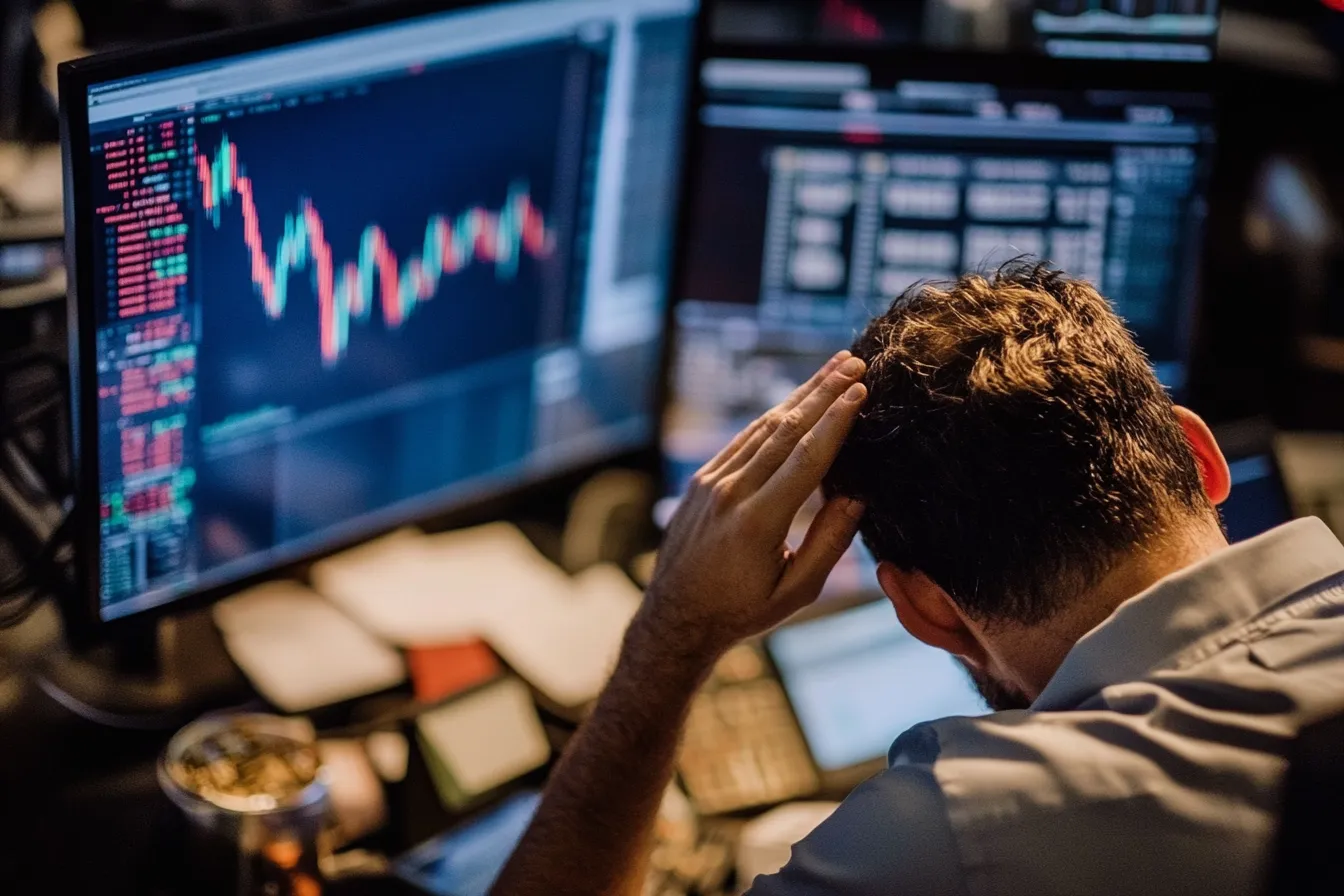Crypto Market Buckles Under Broadening Market Panic



The cryptocurrency market experienced a significant downturn on Tuesday, mirroring a sharp sell-off in traditional equities as U.S. President Donald Trump's escalating trade policies triggered widespread investor unease.
The total cryptocurrency market capitalization shed 5.8%, plummeting from $2.65 trillion to $2.49 trillion, reflecting a growing risk-off sentiment across asset classes.
Bitcoin (BTC) led the crypto decline, falling by 6.37% overnight, while Ethereum (ETH) saw an even steeper drop of 10.58%, and Solana (SOL) retreated by 7.13%. This synchronized downward movement indicates that the crypto market, which had previously shown some resilience amidst trade war anxieties, is now succumbing to the broader market panic.
The sell-off in digital assets coincided with a brutal day for U.S. equities. The S&P 500 closed below the critical 5,000-point mark for the first time in nearly a year, marking its largest four-day loss since its inception. The index has now erased $5.83 trillion in market value since President Trump's announcement of hefty global tariffs last week, its steepest four-day percentage decline since the height of the COVID-19 pandemic, according to Reuters. The Dow Jones Industrial Average fell by 0.84%, and the Nasdaq Composite tumbled by 2.15%.
The widespread market downturn also impacted crypto-related stocks. Coinbase (COIN) closed down by 3.69%, while Strategy (MSTR), a significant Bitcoin holder, saw a more substantial decline of 11.26%.
Initially, U.S. markets saw a brief rally on Tuesday morning, opening around 3% higher, fueled by fleeting hopes of potential tariff concessions or delays.
However, these hopes were dashed by a firm stance from the White House, confirming that the tariffs would indeed go into effect. Adding to the negative sentiment, U.S. officials confirmed that new tariffs on Chinese goods, reaching as high as 104% on some items, would take effect at 12:01 a.m. Eastern Time on Wednesday. China had earlier stated its unwavering opposition to what it termed the "blackmail nature" of the U.S. tariff threats.
The escalating trade tensions have sparked concerns about potential inflation and a slowdown in global economic growth, leading some to speculate about potential Federal Reserve interest-rate cuts. Adding to the bearish outlook, BlackRock CEO Larry Fink warned of a potentially significant market decline and downplayed the likelihood of multiple Fed rate cuts this year, even suggesting a possible rate increase. Fink also highlighted his concern that the tariffs would weaken the U.S. dollar and that many CEOs believe the U.S. is already in a recession.
The CBOE Volatility Index (VIX), Wall Street's fear gauge, surged to its highest closing level of 52.33 (+11.39%) since March 2020, reflecting the heightened anxiety among investors. The earnings season, set to begin later this week with reports from major banks like JP Morgan and Morgan Stanley, is expected to provide further insights into the potential impact of the tariffs on corporate bottom lines.

Perpetual Crypto Futures With Massive Leverage Coming Soon?
While popular among investors outside the US due to their user-friendly interface and high earning p...

OSL to Power Staking for ChinaAMC (HK)'s Ether ETF, Following Hong Kong's Staking Green Light
Staking of the ETF's underlying Ether, facilitated by OSL, is slated to commence on May 15, 2025....

Accumulation, Further Dips Expected Before a Stronger Rally
Your daily access to the backroom....

